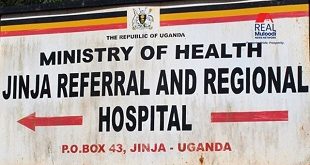
Kampala, Uganda | Julius Businge | Financial inclusion statistics count most when they reflect the unlocking of economic potential through harnessing natural resources, most especially through job creation; thereby reducing poverty and fostering prosperity for all.
Those were some of the words that Governor of Bank of Uganda Emmanuel Tumusiime Mutebile said at a financial inclusion breakfast meeting organised by Financial Sector Deepening Uganda (FSDU) in Kampala on July 10.
Mutebile said that much effort has been spent on financial inclusion to date, yet about 68% of Uganda’s population remains engaged in subsistence agriculture.
“Much ground has been covered as revealed in the latest FinScope Survey results, but a lot remains to be done so as to unleash the full potential of finance to spur economic growth and development,” he said.
He added that players in the Uganda economy must acknowledge the unprecedented impact of the supply side of financial inclusion to date as a foundation for future initiatives on the demand side.
For instance, he said that the introduction of mobile money services in Uganda during March 2009 revolutionised the formal financial services sector.
“After several years of stagnation in the uptake of formal financial services, mobile money pushed formal usage from 28% in 2009 to 58% in 2018,” he said.
He added that mobile money and other supply-side technological developments have redefined financial inclusion through reduction of transaction costs, counterparty risk, and information asymmetry.
However, he said that the technology-driven financial infrastructure of today and tomorrow will count fully when it is made accessible to consumers with knowledge, skills, and confidence to constructively engage with the financial system.
Rashmi Pillai, the executive director for Financial Sector Deepening Uganda said that the government and other players need to harness opportunities in critical sectors of the economy that are capable of creating jobs and fighting poverty.
She pointed out that agriculture – with a 22% contribution, services with a contribution of close to 50% and manufacturing that contribute another 21% to GDP must be supported to grow and create opportunities for the people.
She said that the government and its partners must deal with risks related to uncertainty in the macro economy, regulatory barriers, limited access to finance, and lack of enough workplace skills to be able to push financial inclusion curve upwards.
She said that current statistics provide a good basis for asking the government to do more.
For example, she said that although the economy grew by an average of 4.5% year on year between FY 2015/16 and FY17/18, the number of people living in poverty increased in the same period from 19.7% in FY2015/16 to 21.4% in FY17/182.
“This means that whereas the economy is growing, this growth has not been inclusive enough as it has not translated into job creation, poverty reduction and significant wealth creation for Ugandans,” Pillai said.
In this effort, she said that the financial sector should be viewed as not the driver but the enabler and actively supporting the needs of the real economy and the overall well being of individuals and businesses.
 The Independent Uganda: You get the Truth we Pay the Price
The Independent Uganda: You get the Truth we Pay the Price


